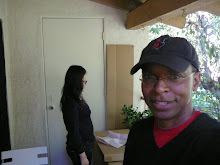
The sun never set on Great Britain's empire for hundreds of years, and it continues to burn brightly on the sports pages in the world's print media. Citizens from the United States who read international newspapers can always find a mixture of amusement and bewilderment in the English words and phrases used to describe athletes in action.
In both the U. S. and Britain, adjectives and verbs mix with slang and colloquialism to create a descriptive language all its own, but there are stark differences in style. In China and other nations touched by a broad British influence, Americans can find a long list of terms which they would never see in a newspaper at home.
FORM, describing a condition of a player or team: "Liverpool showed good form." I can assure you the only form sports fans in the U. S. are interesed in is that which is exhibited by the Laker Girls or the women in the Sports Illustrated swimsuit issue.
CRASHED-OUT means a player or team lost its game or match. But let's get real, the only sport in which anyone should really expect to read the phrase "crashed out" is auto racing. Or maybe rugby. It depends on who is receiving the crashing.
SNATCHED, as in "the Chinese gymnasts snatched their third gold medal." The present tense of this word is also used to describe a part of the female anatomy, in both the U. S. and Britain. It's basically an obscenity which can't be used in mixed company, much less on the sports page. The fact that the British are still printing this word probably indicates the lack of lady sports editors in newsrooms across the Commonwealth (or what's left of it, anyway).
LEVEL, to even the score: "Manchester United leveled the match." I am personally more accustomed to seeing the word "tie" to describe an even score. But in soccer, the "tie" is the game itself. Leveled is a word to suggest what Mike Tyson used to do to opponents in the boxing ring.
There are a few good reasons why soccer is not so popular in the U. S. European-based English adjectives meant to describe great soccer action tend to be those once used by 19th century British aristocracy. A "brilliant" goal. A "sublime" pass. "Gifted." "Clever." "Well-Earned." "Well-Deserved." Predictably, the words Americans use to describe the same kind of events evoke much more violent or extravagant 20th century imagery: "blazing"..."dazzling"..."towering."
I haven't seen a Yao Ming dunk described as "clever" yet, but the poor defender who tried to stop Yao probably got a "well-deserved" degree of humiliation.

